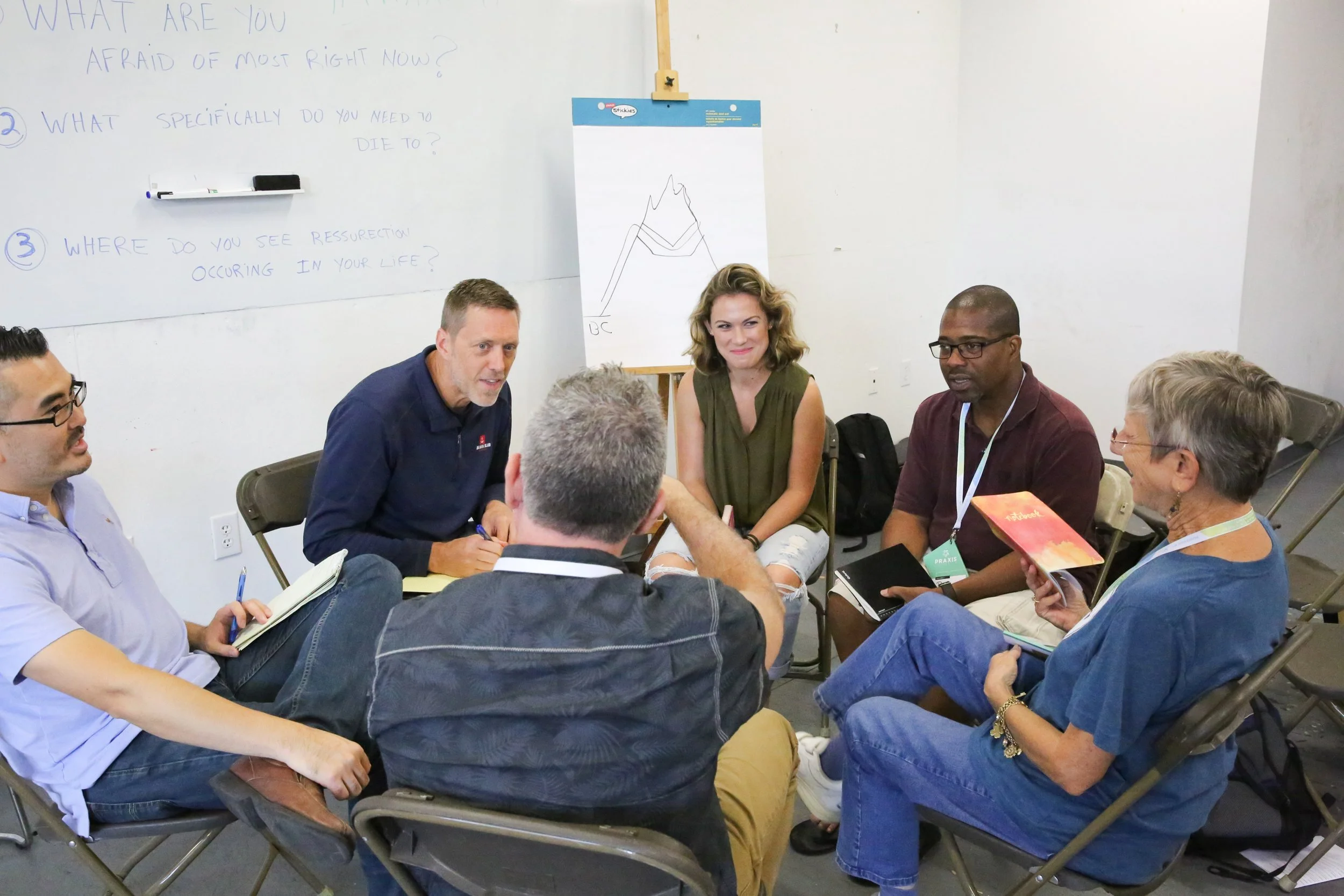
Training
Developing New Competencies
Why Cohorts?
Research shows that church planters who engage in an in-depth training experience alongside experienced coaches are more likely to succeed in their efforts at church planting. This is why every church that partners with V3 participates in training cohorts. Most church planters are trained in how to draw a crowd and preach a good sermon, but few have been equipped for the future the church is facing. Many are starving for guidance and grounded tools on how to cultivate movemental types of church bodies. Our cohort training is holistic, communal, peer-based, and practice oriented.
Reimagining Church
Facing and Discerning a Path to Renewal
Many people today carry wounds from the church and wonder if there is still a place for them in God’s story. Others sense the Spirit stirring but are unsure how to begin. This 12-week journey creates space to process past hurts, uncover dysfunctional church narratives, and imagine new possibilities of what church could be.
Together we will walk through faithful deconstruction, fruitful reconstruction, practical discipleship, and team formation, all with the goal of discernment. By the end, you will have the clarity to know whether God is calling you to experiment with a new community of faith; one that is rooted in love, shaped by Jesus, and open to personal and social transformation.
Praxis Community Cohort 1
Engaging
If you are in the planning phase or are just beginnig a new community (within the first three years), then this is your training cohort.
Our experience training over 1000 practitioners around the world in a large variety of contexts has demonstrated that knowing and practicing the basics is integral to success. While other trainings may give you information but leave you to apply it on your own, V3 is committed to partnering with you on the journey.
In this 30-week cohort, an experienced coach will walk alongside you and 5-7 other practitioners as you methodically work through material and put it into practice. Together, you will take the journey from the last week of August to late April, learning the grassroots work of applying the frameworks to create diverse models for your specific context.
This is designed for you to go through individually or with other members of your team. Team discounts are available. This training cohort is also a pre-requisite for partnering with our support ecosystem and receiving grants from V3. Once you have a working knowledge of the V3 Core Competencies, you are welcome to continue the journey in Praxis Communities 2.
Core Competencies:
Movemental Intelligence
Polycentric Leadership
Being Disciples
Making Disciples
Missional Theology
Ecclesial Architecture
Community Formation
Incarnational Practice
Praxis Community Cohort 2
Establishing
Building something real often takes time. Creating a transformational community takes working through issues. It happens at the speed of developing trust and growth is grounded in the rhythms of life. For those who graduate from Engaging (Praxis Communities 1), we offer a deep dive in Establishing (Praxis Communities 2). It is a chance to continue building your faith community with the support of an experienced coach and peers who are on the same journey.
Alongside your fellow cohort members, you will work deeper in each of the eight competencies, unpacking their application and troubleshooting the situations that naturally arise in faith communities. Praxis Communities 2 (PC2) elevates the level of peer-to-peer learning by allowing practitioners to experiment in leading coaching calls. This second cohort training is also designed for you to participate individually or together with members of your team.
Immersions
Short Training Dives & Tangible Tools
These short 4-6 week cohorts are a great way to dive into a key paradigm for building an effective faith community or gain a new skill. Designed for both individuals and teams, they can either help you retool your existing faith community, or offer supplemental training for your team while you go through the Praxis Communities cohort.


